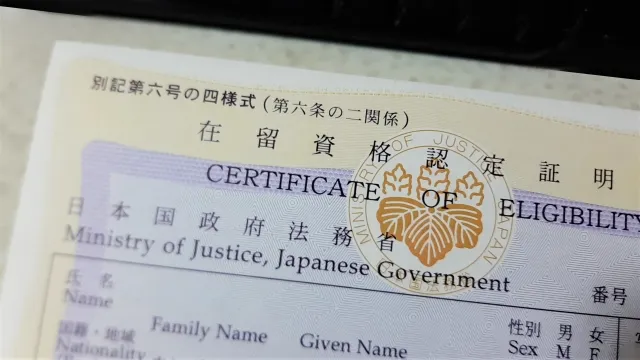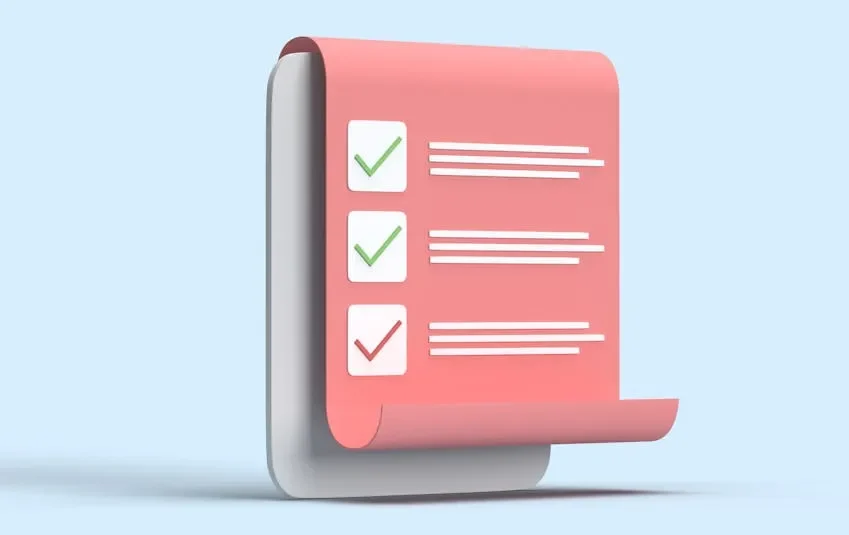Jobs and occupations available with "Technical/Humanities/International Services" status of residence and conditions for obtaining them

The "Technical/Humanities/International Services" visa status, which is a typical work visa, was created by integrating the "Humanities/International Services" and "Technology" visa statuses following the 2014 revision of the Immigration Control Act. In response to the increasing need for companies to meet the multifaceted needs of their work in hiring highly skilled foreign personnel in specialized and technical fields, the distinction between "Humanities/International Services" for liberal arts majors and "Technology" for science majors was abolished and "Technology/Humanities/International Services" was established as a new comprehensive status of residence. The "Technical/Humanities/International Services" category was established as a new comprehensive status of residence.
In this issue, we will explain the background of the integration of the "Humanities/International Services" and "Technology" residence statuses due to the amendment of the law, as well as the current duties and requirements for the "Technology/Humanities/International Services" residence status.
▼Goandup Picks Click here for recommended articles!
- Required before studying abroad! Goandup Nihongo+, an online Japanese language learning service
- This page introduces services for foreigners who wish to study in Japan or improve their Japanese language skills to learn Japanese online.
- Goandup Salon" community for foreigners living in Japan
- We introduce an online community where foreigners living in Japan can exchange information and interact with each other to support their life in Japan.
- Goandup Study" supports foreigners who want to study in Japan.
- This section introduces study abroad support services that provide comprehensive support to foreigners who wish to study in Japan, from preparation for study abroad to living in Japan.
- Where can I buy a prepaid SIM in Japan? Recommended SIM cards for foreigners are also introduced.
- How to purchase a prepaid SIM and suitable SIM cards for foreigners.
- The Complete Guide to Pocket Wi-Fi in Japan for Foreigners!
- We introduce how to select and recommend pocket Wi-Fi products that can be used conveniently in Japan.
- The Complete Guide to Finding a Job in Japan! Finding a job, changing jobs, and part-time work for foreigners
- This site provides foreigners who want to work in Japan with comprehensive information on how to find a job, recommended job sites, and other information necessary to find a job.
そもそも在留資格とは?

在留資格とは、外国人が出入国港において上陸許可を受け、日本入国後、認められた範囲における活動を行える資格のことです。認められた日本での活動に応じて種類があり、「短期滞在」以外の在留資格では住民票を取得することができ、日本で生活することが可能となります。
俗に言う就労ビザは、在留資格「技術・人文知識・国際業務」や「技能」などに該当し、外国人が日本の会社に勤務して、認められた範囲内で活動するための在留が許可されるというものです。就労ビザを取得するためには、様々な条件や法律・規則を適切に理解し、正確かつ戦略的な申請を行う必要があります。
在留資格と就労ビザの違い
ビザが日本入国(審査)時に必要な資格(査証)であるのに対して、在留資格は、出入国港において上陸許可を受けて日本に入国後、日本に滞在して認められた範囲において活動できる資格のことを指します。つまり、ビザは入国のための資格、在留資格は入国後の日本での活動範囲を定める資格と言えます。
The "Technical/Humanities/International Services" visa status, which is a typical work visa, was created by integrating the "Humanities/International Services" and "Technology" visa statuses following the 2014 revision of the Immigration Control Act. In response to the increasing need for companies to meet the multifaceted needs of their work in hiring highly skilled foreign personnel in specialized and technical fields, the distinction between "Humanities/International Services" for liberal arts majors and "Technology" for science majors was abolished and "Technology/Humanities/International Services" was established as a new comprehensive status of residence. The "Technical/Humanities/International Services" category was established as a new comprehensive status of residence.
在留資格「人文知識・国際業務」と「技術」統合の背景

2014年の入管法改正以前においても、高度外国人人材を雇用するにあたり、上陸許可基準として技術や知識に関連する学歴又は実務経験が求められており、学歴又は実務経験と従事する職務内容の関連性を立証する必要がありました。
大学等の教育課程においては、一般的に文系と理系に分かれていることは周知のとおりですが、上記の関連性を判断する際に「人文知識・国際業務」と「技術」の類型に分けて審査していました。
However, in reality, it is not uncommon for humanities-related positions to be reassigned to science-related positions, and it is becoming increasingly difficult to clearly classify the duties into "humanities/international services" and "technical" positions. The reason for this is that it has become difficult to clearly distinguish between "humanities international services" and "engineering".
このように、企業の雇用ニーズの多様化や、業務内容の複合化に対応するため、2つの在留資格が統合され、新たな在留資格「技術・人文知識・国際業務」が誕生したのです。この在留資格の下では、文系・理系の区別なく、高度な専門性を持つ外国人材の受け入れがより柔軟に行えるようになりました。
在留資格「人文知識・国際業務」でできる仕事・職種

在留資格「人文知識・国際業務」では、以下のような幅広い職種で外国人材が活躍することができます。
- 経理・会計
- 人事・総務
- 法務
- Interpretation and translation
- 語学指導
- 広報・宣伝
- 海外貿易業務
- デザイン
- 商品開発
- ソフトウェア開発
文系の専門知識や国際業務に関する能力を活かせる職種が多岐にわたっているのが特徴です。経済学部や経営学部を卒業した外国人が「海外取引業務」を行ったり、大学で日本語を専攻した外国人が通訳・翻訳業務を行ったりするケースも見られます。
また、大学で人文科学の分野の科目を専攻して卒業した外国人が、人文科学の分野に属する知識を必要とするコンピューターソフトウエア開発の業務に従事することも可能です。大学での専攻が理系科目でなくても、在留資格「人文知識・国際業務」の申請が可能であることに注目する必要があります。
在留資格「技術」でできる仕事・職種

自然科学などの典型的な理系分野出身の外国人専門技術者を採用する際に設けられている在留資格「技術」では、以下のような職種に従事することができます。
- systems engineer
- programmer
- 土木・建設機械等の設計・開発者
- 航空宇宙工学の専門技術者
- その他の理系分野の専門技術者
在留資格「技術」では、理系分野の高度な専門性を必要とする職種に従事することができます。IT関連職や各種エンジニア職、研究開発職など、日本の産業発展を支える重要な役割を担う外国人材が数多く活躍しています。
特に近年では、ITエンジニアの人材不足が深刻化しており、高度な技術を持つ外国人エンジニアの採用ニーズが高まっています。在留資格「技術」は、そうした企業の人材ニーズに応える重要な在留資格の一つとなっているのです。
理系分野の専門知識と技術を活かせる職種が中心となっており、日本の産業の発展と技術革新を支える外国人材が在留資格「技術」の下で活躍しています。
在留資格「技術・人文知識・国際業務」を申請する際の3つの条件

在留資格「技術・人文知識・国際業務」の申請の際には、以下3点すべての要件がクリアされているかを確認しなければなりません。
(1) Applicability of status of residence
The first thing to check when considering the acceptance or employment of a foreigner is "whether or not there is a status of residence applicable to the activity you intend to engage in. This is stipulated in Article 7, Paragraph 1, Item 2 of the Immigration Control and Refugee Recognition Act, and the content of activities permitted under each status of residence (i.e., applicability of status of residence) is stipulated in the attached tables (1 and 2) of the Immigration Control Act.
申請者が従事しようとする活動が、在留資格「技術・人文知識・国際業務」に該当するかどうかを慎重に見極める必要があります。該当性が不明確な場合、申請が不許可となるリスクがあるため注意が必要です。
Reference: E-GOV法令検索
(2) Conformance to standards
⑴の在留資格該当性があると考えられる外国人が「技術・人文知識・国際業務」の在留資格を申請し許可を得るための基準に適合しているかを「基準適合性」といいます。当該外国人が従事する業務を遂行するためには、必要な知識を修得していることが必要です。基準適合性は、学歴要件と職務要件の2つの観点から審査されます。
(1) Academic background requirements
Either a university degree or equivalent or higher education, or completion of a special training course at a Japanese special training college is required. In the case of a university graduate, a bachelor's degree is required, and in the case of a special training college, the title of "Senmon-senmongakushi" or "Koudenshoku-senmongakushi" is required. Professional training school graduates are examined more strictly than university graduates in terms of the relevance of their school major to their job duties.
(2) Job Requirements
In the case of "Technical/Humanities," the applicant must have at least 10 years of work experience related to the work in which he/she is engaged. This work experience includes the period during which the applicant majored in a subject related to the relevant technology or knowledge at a university, college of technology, post-secondary education school, or special training college.
On the other hand, for "international business," the applicant must have at least three years of work experience in the business (translation/interpretation, language instruction, public relations, advertising, or overseas trade business, clothing or interior design, product development, etc.) in which he/she intends to engage. However, university graduates are not required to have work experience if they are engaged in translation, interpretation, or language instruction.
Reference:「技術・人文知識・国際業務」の在留資格の明確化等について | 出入国在留管理庁て
(3) Suitability
「技術・人文知識・国際業務」の在留資格で日本に在留するためには、適当と認めるに足る相当の理由があることが必要となります。これは、入管法20条(在留資格変更)及び21条(在留期間更新)に規定されています。
相当性の判断においては、外国人の在留状況、在留の必要性、相当性等を総合的に勘案して判断されます。単に形式的な要件を満たすだけでなく、申請者の在留目的や活動内容が適切であるかどうかが重要なポイントとなります。
以上の3つの要件を満たすことが、在留資格「技術・人文知識・国際業務」の申請において重要です。申請者の学歴、職歴、在留目的等を総合的に判断し、入管当局が適切と認めた場合に在留が許可されることになります。
Useful information and support for living in Japan

Living in Japan is fascinating, but it is not uncommon to face many challenges due to language barriers and cultural differences. For example, you may encounter difficulties in all aspects of life, from using keigo (honorific expressions) in everyday and business situations, to difficulties in finding housing, using public services, preparing for the JLPT exam, and even meeting new friends and loved ones.
At such times, Goandup Salon will be your reliable partner!
Our community provides support and information to help foreign residents in Japan to make their life in Japan richer and more comfortable.
- Japanese Language Studywill meet the needs of all levels, from daily conversation to the use of keigo in business situations, to efficient Japanese language learning methods and preparation for the JLPT exam.
- livingaspect of the program provides concrete advice and information on how to establish a foundation for living in Japan, including explanations of Japanese culture and rules, finding housing, and how to contract public services and living infrastructure.
- Jobs & CareersRegarding the "what if" section, we can help you find a job, change jobs, and understand Japanese business etiquette and workplace culture, which are key to a successful career in the workplace.
- Travel & Dining Guidewill introduce you to hidden gems in Japan, must-try gourmet information, and other unique local attractions to help you experience Japan more deeply.
If you have any questions or concerns about life in Japan, Goandup Salon is here to help you! We will wholeheartedly support you to make your life in Japan smoother and more enjoyable.
For more information, click here ▼
summary
今回は、そもそも在留資格とは何かというところから、在留資格「技術・人文知識・国際業務」でできる仕事・職種や取得するため条件まで解説してきました。
在留資格「技術・人文知識・国際業務」、いわゆる就労ビザを取得するためには、今回説明したような様々な条件や法律・規則を適切に理解したうえで、不許可の処分を受けないよう正確かつ戦略的な申請を行う必要があります。
この記事が、在留資格「技術・人文知識・国際業務」の取得を目指す外国人の皆さんの助けになれれば幸いです。また、在留資格に関するより詳細な情報については、以下の記事も参考にしてみてください。
・What is a Residence Card? Residence card questions answered with a thorough explanation
・Japanese Permanent Residency and Naturalization Process! From difficulty and countermeasures to success points






